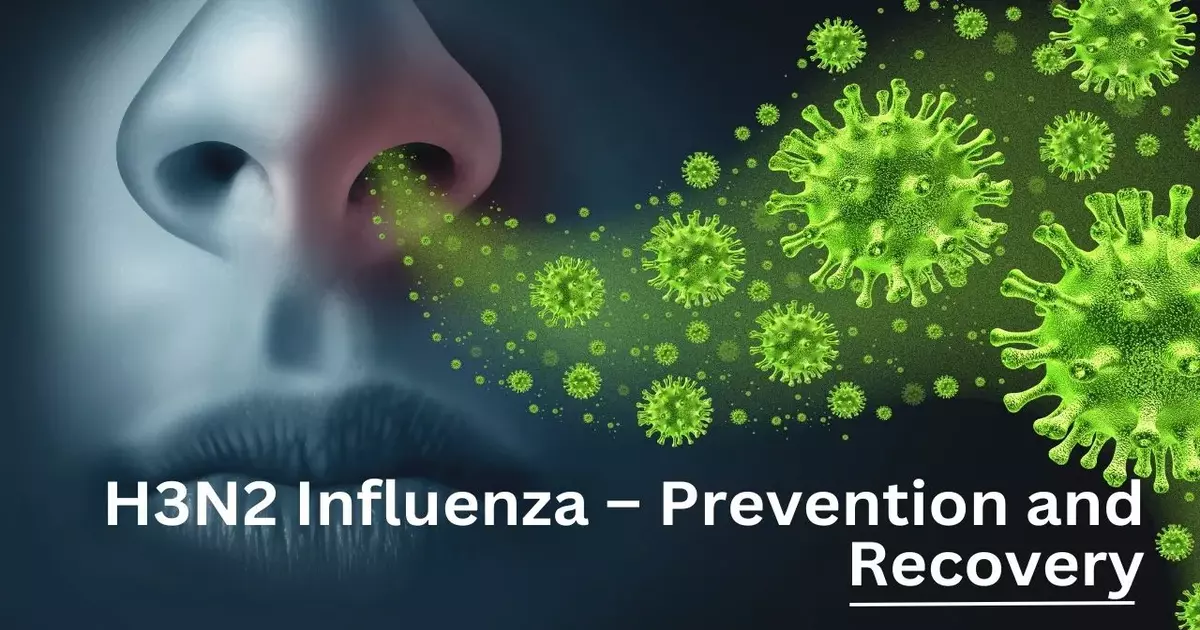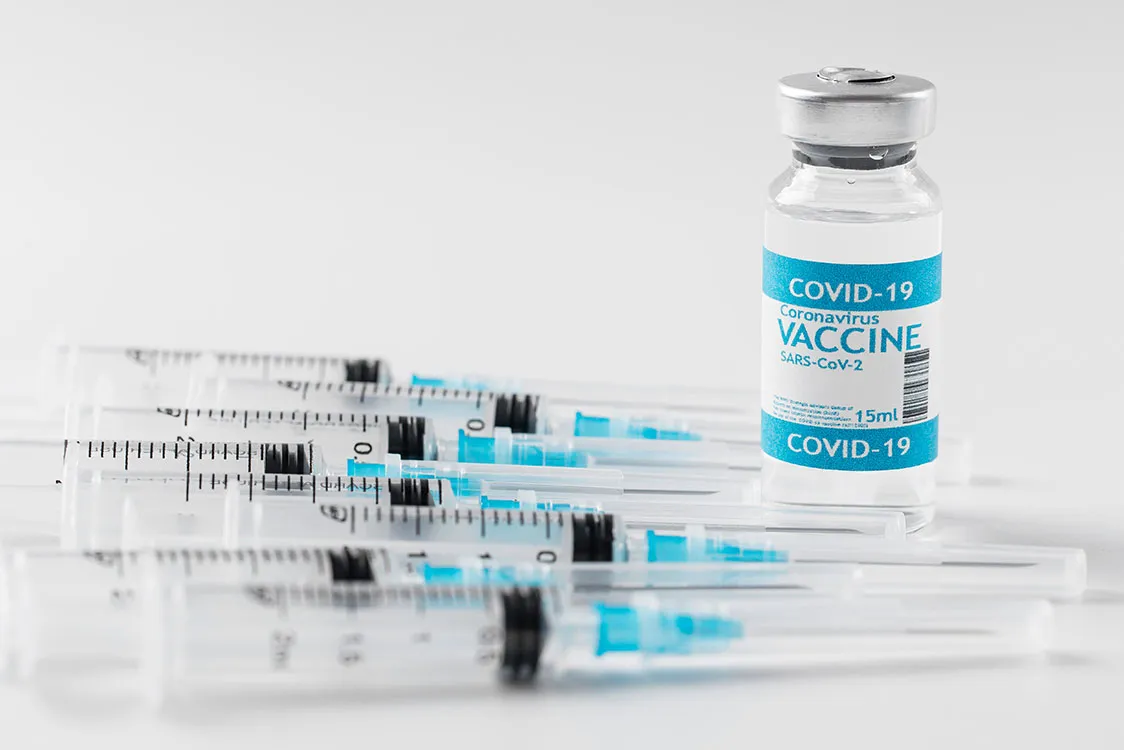The current influenza variant is highly contagious and adversely impacts patients. Dr. Sonal Mhatre, BHMS with 17 years of Clinical experience, addresses commonly asked questions about H3N2 flu and how to prevent it.
Q. 1. What is H3N2 and why is it called so?
Influenza (flu) is a highly contagious respiratory illness that is caused by influenza viruses that infect the nose, throat, and lungs. Influenza viruses are of four types named A, B, C, and D; however, only Influenza viruses A, B, and C can infect humans. Amongst all Influenza viruses, only Influenza A viruses are known to cause flu pandemics.
Influenza A viruses can be divided further into different subtypes based on proteins found in the virus — Hemagglutinin (HA) and Neuraminidase (NA). There are around 18 different subtypes of Hemagglutinin (HA). These are numbered as H1 to H18. Similarly, there are 11 different subtypes of Neuraminidase (NA) and numbered as N1 to N11, respectively.
Influenza A viruses are classified into both HA and NA subtypes. Some influenza A subtypes that you may be familiar with include H1N1 (sometimes known as swine flu) and H3N2.
Q2. Is H3N2 dangerous and Life-threatening?
Although most people do recover from the fever within a week without needing hospitalization, H3N2 influenza can cause serious illness and can possibly be dangerous for certain high-risk patients. H3N2 can sometimes cause severe disease, even in healthy people. This can include complications (like pneumonia). It also can lead to hospitalization and even death.
Q 3. Can it happen to people who have previously suffered from Covid 19?
Yes. COVID-19 and influenza (flu) are both infectious respiratory diseases, and they share similar symptoms. However, the viruses causing both diseases are different, and there are also differences in how the diseases are treated.
Q4. Can a person who has been fully vaccinated for Covid 19 get infected with H3N2 flu? COVID-19 virus is distinct from the H3N2 virus that causes influenza; the vaccines used for each virus are different. Vaccines developed for COVID-19 do not protect against H3N2, and similarly, the flu vaccine does not protect against COVID-19.
Q.5. How to identify whether one is suffering from H3N2? Are there any specific lab tests that can help in early detection?
It can be identified through lab testing H3N2 Test (Pathology Test), RIDT, and RT PCR.
Q. 6 Is H3N2 contagious? How can we stop its spread?
H3N2 is infectious and spreads from one individual to another through respiratory droplets. The virus can infect other people if an infected person coughs, sneezes or speaks. Touching contaminated surfaces with your mouth, nose, or eyes can also spread the virus. We can stop the spread in the following ways:
● Encourage masking
● Covering your mouth and nose while coughing, sneezing, using tissues, and disposing them correctly
● Early self-isolation of those feeling unwell, feverish, and having other symptoms of influenza
● Practice good hand hygiene: Wash your hands thoroughly with soap and water
● Isolate yourself if you feel unwell
● Drink lots of fluids and stay hydrated
● Avoid touching your mouth and nose with unclean hands
Q. 7. Can pets in the house get infected by the H3N2 flu?
Canine influenza H3N2 viruses originated in birds, spread to dogs, and can now spread between dogs. Transmission of H3N2 canine influenza viruses to cats from infected dogs has been reported.
Q. 8. Can it be treated at home with general cold medication?
The primary focus of treatment for this variant is symptomatic treatment, and severe cases should be closely monitored on a real-time basis. To manage symptoms like physical weariness and muscle stiffness, the following interventions might be required:
1. Proper rest – To help our body restore itself and do necessary repairs naturally
2.Drink plenty water – Consuming a significant amount (6-7 liters/day) of water throughout the day is important to prevent body aches and muscle pain from occurring.
3. Warm bath – A long, peaceful soak in hot water can help you feel more relaxed and rejuvenated
4. Steam inhalation and gargling – Steam inhalation to reduce chest congestion and gargle with warm saline water to reduce throat inflammation.
5. Medication – You can ask your physician to prescribe medicines that can lower the fever, pain, and other symptoms. The physician might also prescribe antiviral drugs used for treating the flu. If you take these drugs within 48 hours of being infected, these antiviral drugs can help reduce the disease severity and prevent complications
The main approach is to reduce fever while treating H3N2 and to manage body pain and muscle ache by staying hydrated and controlling other symptoms.
Q. 9. What precautions should be taken to avoid getting contracted H3N2 flu?
Encourage wearing masks in public places. Practice good hand hygiene. Wash your hands thoroughly with soap and water. Good respiratory hygiene like covering mouth and nose while coughing or sneezing, using tissues, and disposing them correctly.
It’s recommended to receive the annual flu vaccine. Avoid the following:
-
Avoid contact with sick people
-
Avoid spitting in public places
-
Avoid shaking hands with people
-
Avoid taking the medication without consulting a doctor
-
Avoid eating in crowded places while sitting close to other people
Q. 10. What kind of diet should a person suffering from H3N2 take to recover?
Eating home-cooked, low-spice, and low-fat food can help. Eating nourishing food, leafy greens, citrus fruits, and garlic and drinking plenty of fluids can provide essential nutrients and keep the body hydrated. It can include Honey Ginger Tea for Cold and Cough, Turmeric Milk, and coconut water. Avoid oily, fried, greasy foods, salty foods, alcohol, coffee, caffeinated and sugary drinks.
Q. 11. Can a person who has recovered from H3N2 flu resume traveling? Does the air quality impact the recovery?
The infection from the H3N2 influenza virus usually lasts between five and seven days. While six-eight days are the usual recovery period, some people even take 10-12 days to recover completely.
The duration of shedding the influenza A (H3N2) virus is unknown. Infected persons are potentially infectious from the day prior to illness onset until the resolution of fever. Infected persons should be assumed to be contagious up to 7 days from illness onset.
Q. 12. What are the basic things that a person recovering from H3N2 flu should consider?
-
Take ample rest
-
Drink enough fluids to stay hydrated
-
Use the prescription and guidance from the doctor to treat the symptoms
By staying cautious and taking preventive measures, you can reduce the risk of getting the flu and spreading it to others. It is better to stay safe than feel sorry when it comes to your health.





